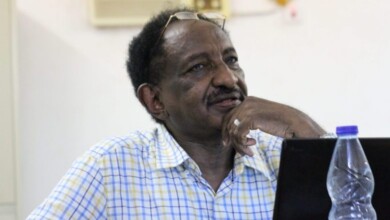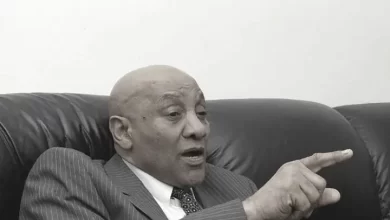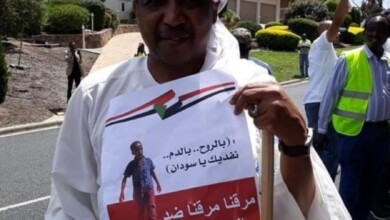Port Sudan: When the State is exposed on its coasts
Dr. Al-Waleed Adam Madibou

The moment the shells fell on Port Sudan, the sound produced wasn’t limited to that of a military explosion, but the sound of a resounding moral and political collapse. The city, which many considered the last safe haven in a weary nation, suddenly had its cover blown.
The blow wasn’t just shells falling on facilities; it was a painful slap in the face of the Authority’s discourse in regards to Port Sudan. The city, presented to the world as the “Alternative Capital,” is now falling from its illusion of being a fortified fortress, alerting those who had sought refuge within the city’s borders that they failed to read the situation carefully and failed as well to realize that what was lost in Khartoum cannot be regained in the east. Furthermore, if the State collapses at its core, its extremities cannot survive, no matter how adorned.
However, what took place wasn’t an isolated incident; it was a link in a long chain of decline that began when the Muslim Brotherhood (Al-Kizan) hijacked Sudan and turned it into a chronic hotbed of terrorism. For decades, these people have managed to successfully hijack the State and emptied it of its meaning, transforming it into an empty ideological shell concealing corruption, tyranny, and excommunication. Sudan has become a burden to itself and a constant source of concern for its neighbors and the world.
In a world governed by delicate regional and international balances, Sudan cannot be left hostage to an extremist group abusing its sensitive geopolitical location on the Red Sea and in the heart of Africa. Therefore, the world will not sit idly by for long. Even if the scene began as everyone remained silent, the moment of uprooting is coming, not because its an external conspiracy, but because Sudan is no longer tolerable internally and cannot be tolerated internationally.
In reality, and at this juncture, I am not concerned with the details of the attack, the supply lines, or the language of military statements. What concerns me is the Sudanese people who have been slapped in the face, once again, without a shield, without a State, without hope. I am concerned with those who have lost their final faith that Port Sudan would be a new beginning, only to see it become an extension of an end that is open to disaster.
It is no exaggeration to state that the bombing of Port Sudan shattered what remained of the illusion of “Official Sudan.” So, what remains? Not the State, the Army, Security, political project, or initiative, not even the meaning to the idea of “transition” or “solution.” All that remains is the people, with their grief, fear, and mysterious determination to survive, even amidst the rubble.
There is no salvation for this nation except through a harsh, courageous awareness that can accomplish the desired emergence from the coma, freeing itself from the illusion of foreign conspiracies, confronting itself, and crying out in the face of the Islamists’ myths and destructive rhetoric: Enough! It is time for this nation to demand their right to a modern State, to a civil regime that respects the law, to belong to an international system against which rebellion is no longer heroic, but suicidal.
In conclusion, Port Sudan was not only bombed from the air; it was bombed from within, used as a final political deception, forced to serve as a facade for a crumbling government. Today, that facade is crumbling, and behind it emerges the biggest question: How do we rebuild a nation without deception, without masks, without the lie of the Capital?
This is not the time for intellectual luxury or hollow rhetoric, but rather for practical and emotional preparation for the coming moment when the State as we know it will collapse. Either we become worthy of a new homeland born from the rubble of a hijacked State, or we will once again be absent from the founding scene, content with lamentations and blame.
This is an opportunity that history never grants twice, and whoever fails to prepare for it today will be excluded from tomorrow, their name relegated to the margins of the story, not its core.





